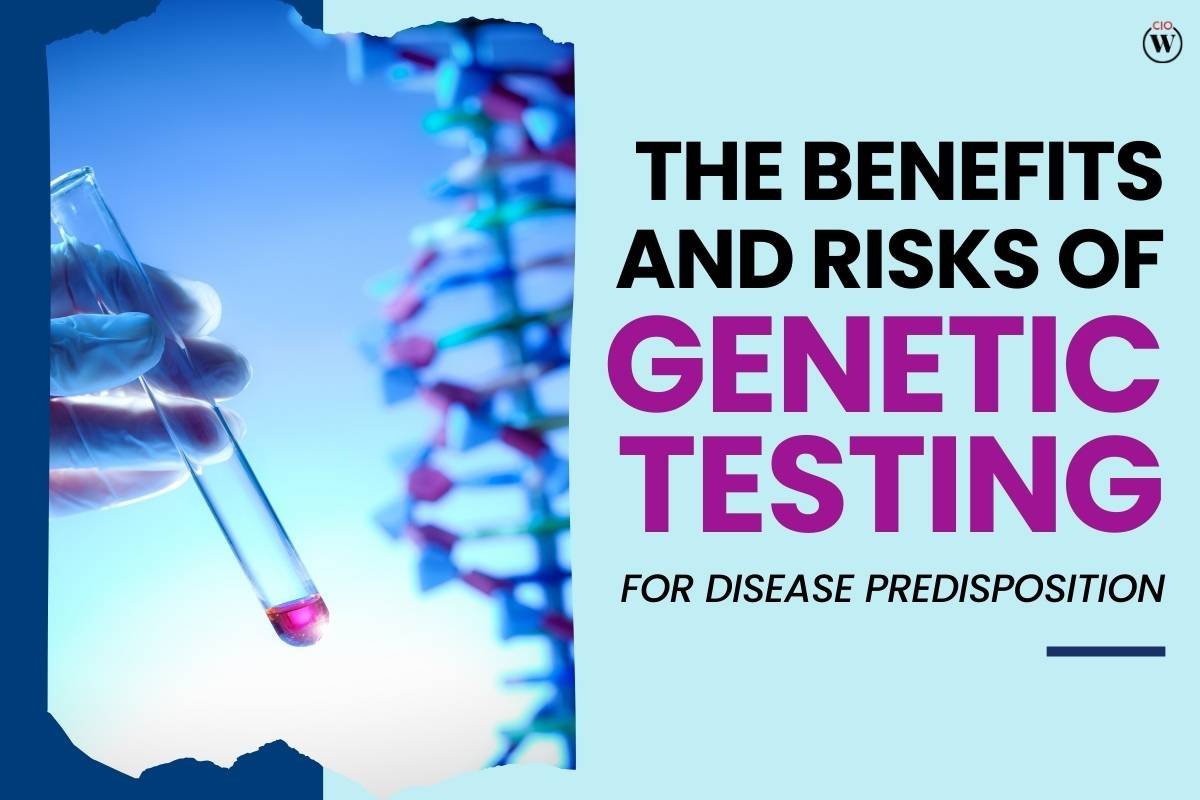In recent years, genetic testing has emerged as a powerful tool in the realm of healthcare, offering insights into our DNA that were once unimaginable. The ability to uncover genetic predispositions to diseases is a remarkable advancement. However, with great power comes great responsibility, as the benefits and risks of genetic testing for disease predisposition are profound and complex. In this article, we will explore the world of genetic testing, its advantages, potential drawbacks, and the ethical and practical considerations that come with it.
Understanding Genetic Testing
Genetic testing, as the name suggests, involves the examination of an individual’s DNA to identify specific genetic variations or mutations that may be linked to the development of diseases or conditions. These tests can provide valuable information about one’s genetic predisposition to a variety of health issues, ranging from common conditions like heart disease and diabetes to rare genetic disorders.
The Benefits of Genetic Testing
Early Detection and Prevention: Genetic testing can identify individuals at a higher risk of developing certain diseases. Armed with this knowledge, individuals and their healthcare providers can take proactive steps to prevent or manage these conditions. For instance, if a person is found to have a genetic predisposition for diabetes, they can adopt lifestyle changes that reduce their risk, such as maintaining a healthy diet and engaging in regular exercise.
- Personalized Medicine:
Genetic testing is at the forefront of the personalized medicine revolution. By understanding an individual’s genetic makeup, by using advances like Whole Genome Sequencing, healthcare providers can tailor treatment plans and medications to be more effective. This can lead to better outcomes and reduced side effects for patients.
- Family Planning:

Genetic testing can also play a crucial role in family planning. If a couple is aware of their genetic risk for certain inherited conditions, they can make informed decisions about having children and explore options like pre-implantation genetic diagnosis (PGD) or adoption.
- Emotional Closure:
For some individuals, genetic testing can provide emotional closure or confirmation. This can be especially relevant in cases where a family history of a particular disease is uncertain, and the test results can offer clarity.
The Risks and Considerations of Genetic Testing
- Psychological Impact:
Learning about one’s genetic predisposition to a disease can be emotionally challenging. Some individuals may experience anxiety, depression, or heightened stress. It is crucial for healthcare providers to offer counseling and support for those undergoing genetic testing.
- Privacy Concerns:
The sensitive nature of genetic information raises concerns about privacy and security. Ensuring that genetic data is kept confidential and protected from misuse is a paramount concern.
- Insurance and Employment Discrimination:
Genetic test results may have implications for insurance coverage and employment. Some individuals fear that their genetic predisposition to certain diseases could lead to insurance discrimination, or that employers may misuse this information in hiring or firing decisions. Legal protections exist, but concerns remain.
- False Positives and Negatives:
Genetic testing is not infallible. There is a risk of false positives (indicating a genetic predisposition that doesn’t exist) and false negatives (failing to identify an actual genetic predisposition). Inaccurate results can lead to unnecessary stress or a false sense of security. That’s exactly why the information from testing is often paired with real-world treatment options. Actually, take this as an example: if someone learns they’re at higher risk for heart disease, they might later discuss procedures like an atherectomy procedure with their doctor as a way to keep arteries clear and blood flowing smoothly.
Ethical Considerations
The use of genetic testing raises various ethical questions:
- Informed Consent:

It is essential that individuals undergoing genetic testing fully understand the process, its implications, and the potential outcomes. Informed consent ensures that individuals make decisions based on complete information.
- Data Handling:
Genetic data is incredibly sensitive and personal. Ensuring that it is handled responsibly and ethically is of utmost importance. Regulations and guidelines must be in place to protect individuals’ genetic information.
- Access and Equity:
Genetic testing should be accessible to all individuals, regardless of their socio-economic status. Equity in access to this technology is a critical consideration.
FAQs on Genetic Testing for Disease Predisposition
1. Who should consider genetic testing for disease predisposition?
Genetic testing may be considered by individuals with a family history of a particular disease, those with concerns about their risk factors, or those interested in personalized health insights.
2. Is genetic testing covered by insurance?
It depends on the type of insurance and the specific test. Some genetic tests are covered, while others may not be. It’s advisable to check with your insurance provider.

3. Can genetic test results change over time?
Genetic information itself does not change, but our understanding of genetic variants and their implications can evolve. Periodic reevaluation of genetic test results may be necessary.
4. Are genetic testing results shared with employers or used for employment decisions?
In many countries, it is illegal to use genetic test results for employment decisions. Privacy and anti-discrimination laws offer protection, but the specifics may vary.
5. How can I ensure the privacy of my genetic data?
Choose a reputable genetic testing service that has strong privacy and security measures in place. Read their privacy policies and ensure you understand how your data will be used and protected.
6. Are genetic tests 100% accurate?
No, genetic tests are not infallible. They can have false positives and false negatives. The accuracy of a test depends on various factors, including the specific test and the quality of the laboratory conducting it.
Conclusion
Genetic testing for disease predisposition holds great promise, offering the potential for early detection and personalized healthcare. However, it is not without risks and ethical considerations. As this field continues to advance, it is imperative that individuals, healthcare providers, and policymakers work together to ensure that genetic testing is used responsibly, ethically, and equitably, so that the benefits can be maximized while the risks are minimized. Making informed decisions about genetic testing requires a thorough understanding of its advantages and potential drawbacks.









